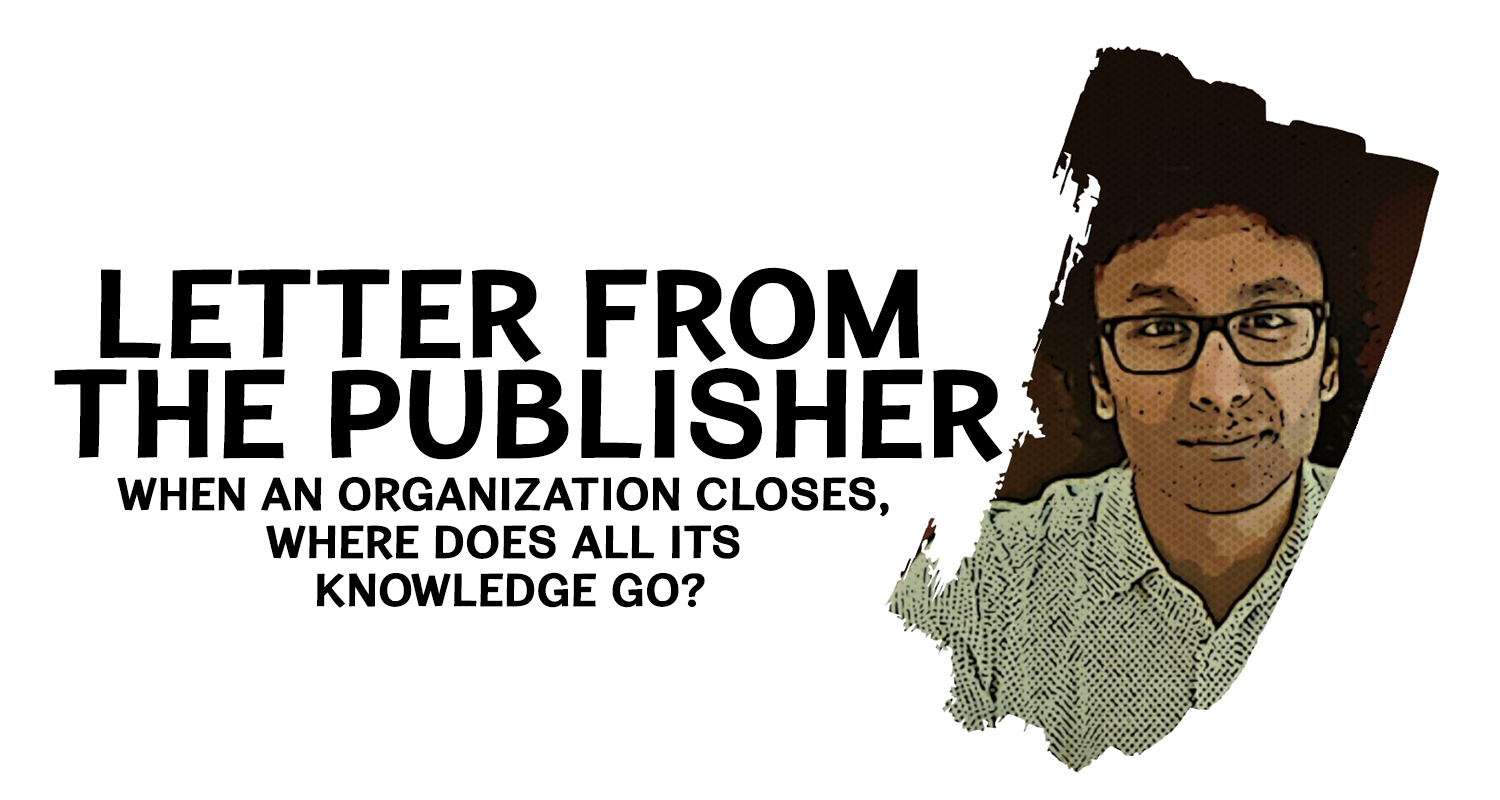When an organization closes, where does all its knowledge go?

As back-to-school season approaches, there has been endless debate around the concerns for children, including the risk they might spread COVID-19, their mental health, access to technology — and perhaps more significantly, how they not lose their pace in learning and keep up their knowledge to prepare them for workplaces and for society.
I am a parent, and I too obsess over my child’s right to health and knowledge. I am also worried about another kind of knowledge that hangs in the balance right now.
Let me ask you: If you could put a price on it, how much is all the knowledge in your organization worth?
Now what about all the knowledge in all of Canada’s social impact organizations combined?
Many of us are worried about the loss of knowledge our children have experienced due to COVID-19 disruptions — is anyone concerned about the loss of knowledge in organizations laying off staff and struggling to stay open?
I recently read a brilliant book called ‘The Bad-Ass Librarians of Timbuktu’ (Yes, it is a real place in Mali, west Africa). I picked it up because I am fascinated by the history of Timbuktu. It was a global centre for scholarship, research, and study in the middle ages. Scholars from all over the world came to learn, teach, and write in Timbuktu — there’s an estimated close to one million manuscripts still around from the middle ages on all sorts of subjects, from medicine to astronomy and agriculture to Islamic studies. An enormous wealth of knowledge. The book is all about how a handful of librarians protect and preserve hundreds of thousands of ancient manuscripts from various invading forces over the last 25 years by distributing them across Mali when libraries were forced to close. Needless to say, I have a whole new respect for librarians now for the action-hero-like risks they took to protect and safeguard the knowledge of Timbuktu.
Now let me ask you again: how much is all the knowledge in your organization worth? All the reports, the data, the experiential knowledge, the product knowledge, the findings and learnings from all your programs, and much more — since COVID started and since your organization started. If you think the knowledge in your organization is worth something, then the question is how can we protect it?
Knowledge is our greatest asset.
And we have an abundance of knowledge in the social impact world.
It isn’t recognized with patents nor does it show up in our organizations’ balance sheets as an asset, but there is extraordinarily valuable domain-related, experiential, contextual, historical, scientific, and procedural knowledge in every organization, and across a vast range of fields — from sport to early childhood education to mental health and poverty alleviation. It’s served us well. But I wonder what grade we would give ourselves when it comes to capturing and sharing the knowledge within our organizations. And if our organizations have to downsize or close down, more often than not, the knowledge disappears.
The problem could be quite serious with the pandemic. Recent data from Imagine Canada illustrates that one in five Canadian charities have already suspended operations, and some have ceased operations permanently. This includes local entities of large networks like the YMCA to small community-led social enterprises like the Old East Village Grocer operated by ATN Access for Persons with Disabilities.
If one in five actually close permanently, how much knowledge will disappear?
One of the most influential definitions of knowledge in the professional context is by academic Laurence Prusak, who defines it as what we know, or what we can accept we think we know and has not yet been proved invalid. According to organizational learning researcher Michael J. Marquardt, there are typically six steps to managing knowledge: acquire, create, use, store, retrieve, and disseminate. The social impact world is quite good at the initial three steps, but how strong are we collectively, and how strong is your organization when it comes to storing, retrieving, and disseminating knowledge?
COVID-19 has been both an incredibly challenging time and a time of enormous creativity for the social impact world. Nevertheless, it’s a painful realization, a hard truth, that a number of organizations might not make it. But it’s in our collective interest to support organizations that have to downsize or close, to do so in a responsible, thoughtful, and intelligent way — in a way that draws out all of its knowledge and wisdom so it is useful to the wider social impact sector. The thing is, to go through a thorough process of capturing, storing, and disseminating organizational knowledge takes effort, time, and resourcing. Who has the onus to support this work? It’s time for grantmakers, impact investors, and funders of all kinds to step up to support the organizations you fund, especially those that are at risk, to help protect and disseminate its knowledge assets.
Eric M. Meslin, CEO at the Council of Canadian Academies recently wrote on the opportunities to learn during the pandemic in The Toronto Star: “By leveraging collective thinking we can shrink the gap between what is known and what isn’t. We should not succumb to skepticism about the value of knowledge in digging our way out of the toughest social problems. It is a massive resource to be deployed.” I agree.
By neglecting the sector’s knowledge assets, we do a great disservice to the people across Canada working so hard to address problems and enhance lives. The clock is ticking. Let’s think and act more like the librarians of Timbuktu — swift, courageous, and passionate about safeguarding knowledge for the greater good.
Vinod Rajasekaran
Publisher & CEO

